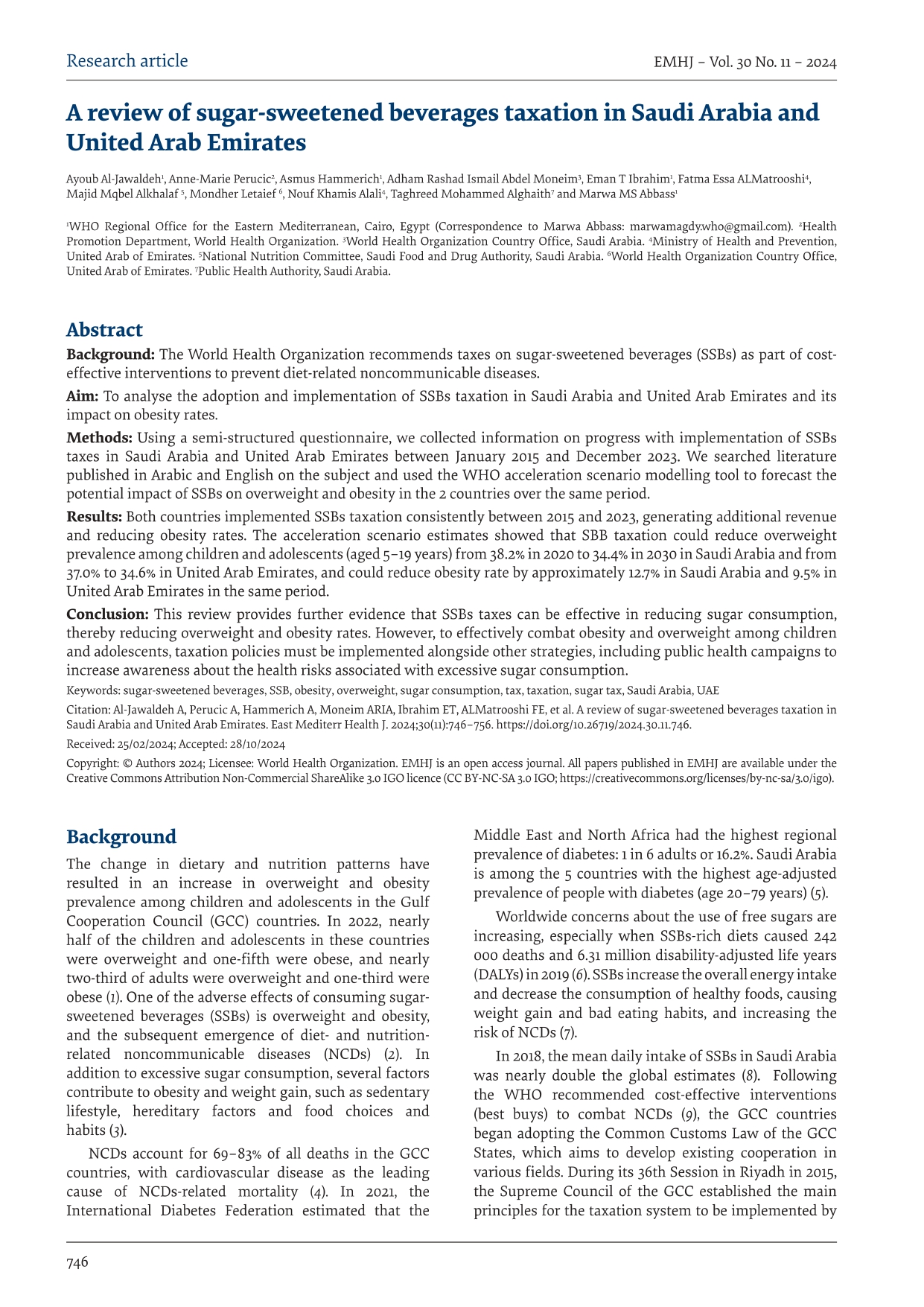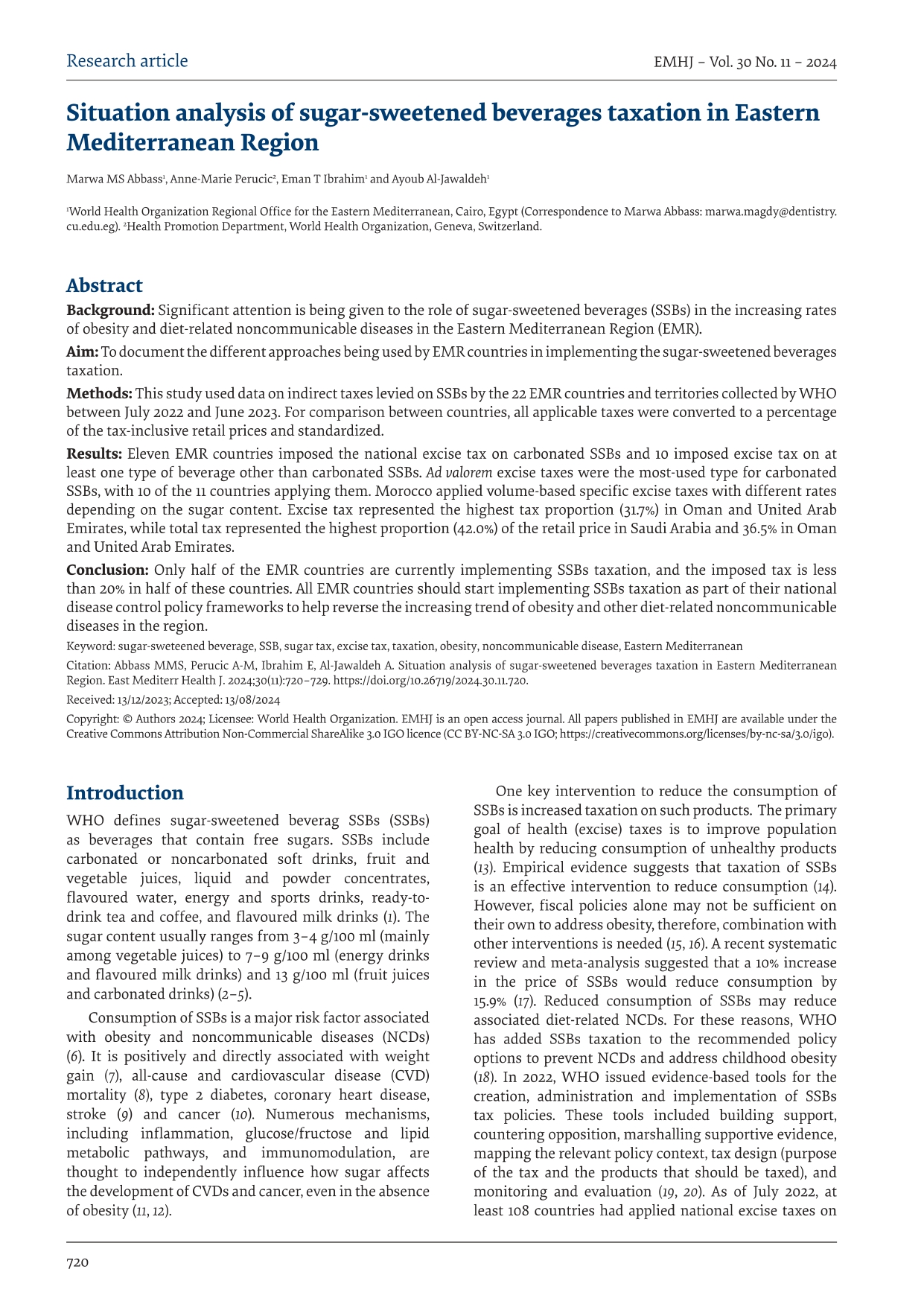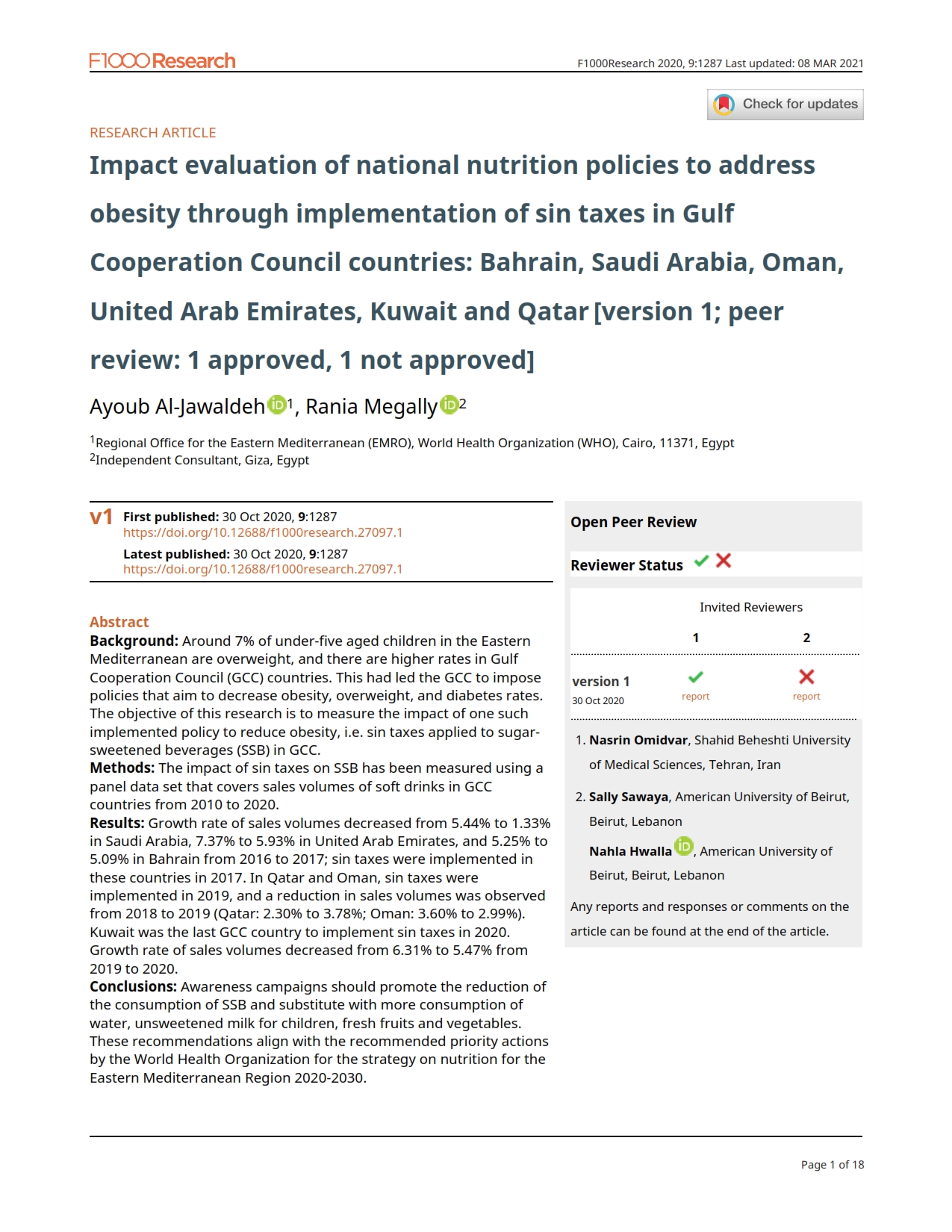
A review of sugar-sweetened beverages taxation in Saudi Arabia and United Arab Emirates
Publication date: 2024
Significant attention is being given to the role of sugar-sweetened beverages (SSBs) in the increasing rates of obesity and diet-related noncommunicable diseases in the Eastern Mediterranean Region (EMR). The aim of this paprer is to document the different approaches being used by EMR countries in implementing the sugar-sweetened beverages taxation. To conclude, only half of the EMR countries are currently implementing SSBs taxation, and the imposed tax is less than 20% in half of these countries. All EMR countries should start implementing SSBs taxation as part of their national disease control policy frameworks to help reverse the increasing trend of obesity and other diet-related noncommunicable diseases in the region.

Situation analysis of sugar sweetened beverages taxation in Eastern Mediterranean Region
Publication date: 2024
Significant attention is being given to the role of sugar-sweetened beverages (SSBs) in the increasing rates of obesity and diet-related noncommunicable diseases in the Eastern Mediterranean Region (EMR). The aim of this paprer is to document the different approaches being used by EMR countries in implementing the sugar-sweetened beverages taxation. To conclude, only half of the EMR countries are currently implementing SSBs taxation, and the imposed tax is less than 20% in half of these countries. All EMR countries should start implementing SSBs taxation as part of their national disease control policy frameworks to help reverse the increasing trend of obesity and other diet-related noncommunicable diseases in the region.

Impact evaluation of soft drink taxes as part of nutrition policies in Gulf Cooperation Council countries: Bahrain, Kuwait, Oman, Qatar, Saudi Arabia and United Arab Emirates
Publication date: 2021
There is a high prevalence of overweight and obesity in the Eastern Mediterranean Region, and there are higher rates in the Gulf Cooperation Council (GCC) countries. This had led GCC countries to impose policies that aim to decrease obesity, overweight, and diabetes rates. The objective of this research is to measure the impact of such implemented policies to reduce obesity, namely taxes applied to sugar-sweetened beverages (SSB) in GCC. The findings show that the introduction of health-related taxes on soft drinks has been followed by a drop in the growth rates of sales in GCC countries.

Impact of sin taxes on consumption volumes of sweetened beverages and soft drinks in Saudi Arabia
Publication date: 2021
The consumption of sweetened drinks plays a major role in increasing the burden of diseases such as obesity and cardiovascular diseases. The prevalence rate of obesity and overweight individuals in Saudi Arabia has increased alarmingly among children over the past decade, revealing a crucial need to initiate and monitor effective prevention measures of obesity. This paper aims to measure the impact of sin taxes of sugar-sweetened beverages on the consumption level of such beverages in Saudi Arabia.

Impact evaluation of national nutrition policies to address obesity through implementation of sin taxes in Gulf Cooperation Council countries: Bahrain, Saudi Arabia, Oman, United Arab Emirates, Kuwait and Qatar
Publication date: 2020
Around 7% of under-five aged children in the Eastern Mediterranean are overweight, and there are higher rates in Gulf Cooperation Council (GCC) countries. This had led the GCC to impose policies that aim to decrease obesity, overweight, and diabetes rates. The objective of this research is to measure the impact of one such implemented policy to reduce obesity, i.e. sin taxes applied to sugar-sweetened beverages in GCC. Awareness campaigns should promote the reduction of the consumption of sugar-sweetened beverages and substitute with more consumption of water, unsweetened milk for children, fresh fruits and vegetables. These recommendations align with the recommended priority actions by WHO for the strategy on nutrition for the Eastern Mediterranean Region 2020-2030.








